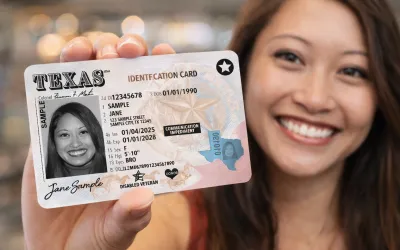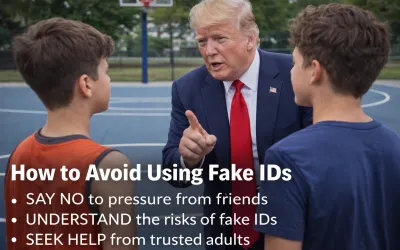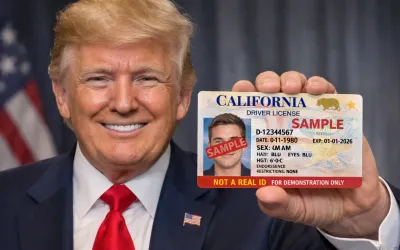2025 Fake IDs on U.S. College Campuses: How Students Buy, Sell, and Get Caught
Introduction: The Persistent Problem of Fake IDs
——
Fake IDs have become a common tool for college students seeking access to age-restricted venues. According to the IDScan.net 2024 Fake ID Report, roughly 34.5% of college students admit to owning a fake ID, and in one survey, 42.3% reported having or having had a fake ID, with 40% admitting to using it at bars.
——
Some students purchase fake IDs online, while others borrow real IDs from friends over 21. But beyond using them for access, a few students have turned this into a small-scale business—sometimes with serious legal consequences.
——
Joseph Clay: Turning Fake IDs Into a Business
——
At the State University of New York at Buffalo (ranked #76 in 2025 US News), Joseph Clay started selling fake IDs during his freshman year. Over three years, he sold hundreds of IDs monthly to fellow students—a business that could land him in jail.
——
Clay began his entrepreneurial journey in high school, buying fake IDs from online dealers for $50 each and reselling them at a higher price. He explained, “People are willing to pay $100 or more for two IDs.” He even offered free fake IDs to students who referred others, boosting his customer base.
——
Most of the fake IDs Clay sold were from Delaware and Ohio, as high-quality New York fakes were harder to source. While he could theoretically order from China, the risk of detection at U.S. borders made domestic sources safer. Using PGP encryption, he secured sensitive messages and customer information.
——
Eventually, Clay expanded into drug sales, using the same online techniques. He left school to focus entirely on his “business,” illustrating how fake ID operations can quickly escalate into other illegal activities.
——
How Students Buy Imported Fake IDs
——
Not all students rely on peer sellers. Many purchase fake IDs directly online. For instance, Rachel Dudley, a civil engineering student at SUNY Buffalo, bought her first fake IDs in high school to buy alcohol. She used the website ID Gods to purchase two Pennsylvania driver’s licenses for $80, shipped from China disguised as a package of chopsticks.
——
However, using fake IDs isn’t always straightforward. Cashiers and bouncers often scrutinize out-of-state IDs, and scanning magnetic strips can reveal counterfeit documents. Dudley reported that large chains like Tops and Wegmans refused sales, while smaller liquor stores were more permissive.
——
Even bars posed challenges. On multiple occasions, Dudley’s IDs were confiscated by bouncers. After spending $160 on fake IDs, she resorted to borrowing a real ID from an adult relative to gain entry.
——
According to surveys, 12% of students have had fake IDs confiscated by police, and 27% had them seized by bar or store staff, showing that law enforcement and business policies actively limit the use of fraudulent IDs.
——
The Legal Consequences of Fake IDs in New York
——
New York law is clear: using a fake ID can carry serious penalties. While Section 170.25 of the New York Penal Law classifies “criminal possession of a forged instrument” as a Class D felony, punishable by up to seven years in prison, first-time offenders may receive fines, probation, or community service.
——
If the fake ID contains real personal information, a student could be charged with criminal impersonation under Section 190.25, a Class A misdemeanor with up to one year in jail. Additionally, violations under Vehicle and Traffic Law §509-6 could result in fines up to $300 and up to 15 days in jail.
——
Penalties vary by state. In California, fake ID use may be a misdemeanor with fines and community service. In Texas, students could face up to 180 days in jail and fines up to $2,000. Consequences extend beyond immediate punishment, affecting employment and education opportunities.
——
Efforts to Combat Fake IDs
——
To curb fake ID use, New York and other states have implemented holograms, magnetic strips, and barcodes, making counterfeit production more difficult and expensive. Such measures are part of broader efforts to prevent underage drinking.
——
In 2018, Governor Andrew Cuomo launched Operation Prevent, a multi-agency initiative to strengthen enforcement against fake IDs. In 2024, Governor Kathy Hochul and Attorney General Letitia James continued the program, focusing on protecting public safety and preventing underage alcohol consumption.
——
Operation Prevent involves regular raids, public education campaigns, and advanced ID scanning technology that detects holograms, barcodes, and magnetic strips. The program also promotes responsible drinking through partnerships with alcohol retailers and producers.
——
Educational outreach is key. Schools and community organizations host lectures and workshops to teach students about legal consequences and potential risks of fake ID use. These preventive measures aim to reduce both legal and personal dangers.
——
Why Students Risk Using Fake IDs
——
Despite the risks, many students attempt to obtain fake IDs, driven by curiosity, peer pressure, and the social culture of drinking in college. Many campuses, including dormitories at U.S. universities, are alcohol-free, which can paradoxically increase the desire to circumvent rules.
——
While the consequences for first-time offenses may seem minor, repeated violations or serious infractions could impact a student’s academic record, future employment, and personal safety. Authorities stress that illegal drinking and possession of fake IDs can lead to accidents, fights, and legal complications.
——
Conclusion: Awareness and Responsibility
——
Fake IDs remain a persistent issue on U.S. college campuses, facilitated by online access and peer networks. While enforcement and legal measures such as Operation Prevent help curb the problem, student awareness and responsibility are critical.
——
Parents, educators, and students should recognize the serious legal and personal risks associated with fake IDs. Understanding the laws, the consequences, and the enforcement strategies is essential for safety and compliance.
——
Students are encouraged to avoid illegal activities and adhere to campus and state regulations. For more guidance on college policies or potential legal issues, consulting a U.S. study-abroad or legal advisory service can provide helpful resources and support.
——




